This weekend the two final candidates in the race to become Brazil’s next president, the leftist front-runner Luiz Inacio Lula da Silva and the incumbent President Jair Bolsonaro are going head-to-head in a runoff that is expected to be tight.
Lula da Silva has been leading in the polls by around 7 percentage points, but few had expected Bolsonsaro to get even this far, meaning his chances of winning, or even crying foul if the election does not go his way, should not be completely ruled out.
Here are five reasons why Bolsonaro’s support has endured and why, even if Lula does win tomorrow’s election, Brazil is still likely to remain more divided than ever.
1. Bolsonaro’s government has been spending big
On the streets of Rio de Janeiro, Irish freelance journalist Sarah O’Sullivan said there are still many areas where people don’t feel free to display their political affiliation, as the election run-off approaches.
"The atmosphere is really tense here at the moment," she said. "There are certain spots of Rio de Janeiro for example around Barra da Tijuca where Bolsonaro actually lives, where his residence is based, and there people wouldn’t even dare to have a Lula flag or anything like that… People are tense, people are worried, people didn’t expect that Bolsonaro would enjoy quite so much support, four years into his current presidency."
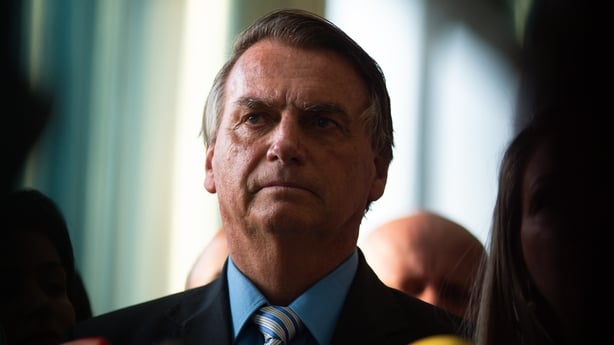
Some of that support has been strengthened by a wave of new government spending by the current president which is thought to have given him a boost in the final stretch of this hard-fought campaign.
The largest single new expense in the federal budget was a 50% boost to welfare payments for the poorest Brazilians, who now receive 600 reais per month from the programme, called Auxilio Brasil, at a cost of 26 billion reais this year alone.
Many legal experts in Brazil say this is a dangerous precedent for electoral law. Jair Bolsonaro’s last-minute cash giveaways to families, on top of his Covid stimulus package, have also left the Brazilian state with a fiscal overhang, which will make it difficult for whoever takes presidential office in January.
Sarah O’Sullivan said some of these payments are not budgeted to continue into 2023, despite being much needed by some of Brazil’s poorest.
"In Brazil we have 33 million people who are facing hunger on a daily basis, scavenging in tips for food, buying bones and boiling bones instead of buying meat in the supermarket, but Bolsonaro says very clearly: 'No one is hungry in Brazil'."
Dr Christopher Sabatini, a senior fellow for Latin America at Chatham House, said Bolsonaro took a spending programme which was already in place, and which had been carefully designed as a safety net, and used it to attempt to win voters through big spending.
"He took what was a very sophisticated social development programme called ‘Bolsa Família' under which the government transferred funding to heads of household women to keep their children in school, for healthcare, for vaccination and targeted goals, and basically Bolsonaro, like any good populist, gutted the entire intention of that programme and is now just giving away cash for free," he explained.
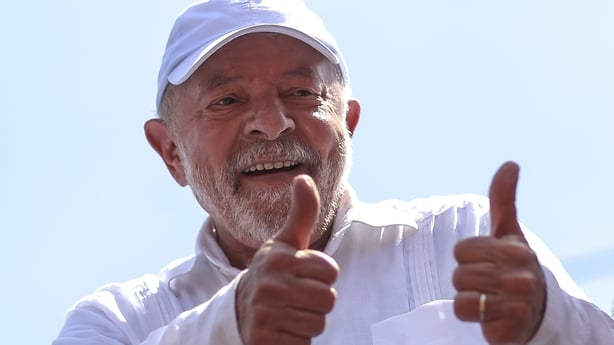
The new measures introduced by Bolsonaro in the run-up to the election are set to cost some 273 billion reais this year and next, according to an analysis of government figures by the news agency Reuters.
Whilst Congressional approval is pending for 146 billion reais worth of that spending, it will add to the fiscal challenges for whoever wins this election.
"It's the fiscal irresponsibility of it… according to Bolsonaro’s own budget office, before these spending sprees, the public deficit was projected to be, in 2023, US $12.25 billion… and what comes next? If Lula is elected and on 1 January when he’s sworn in, he can’t sustain those programmes. Whoever is elected is going to face a very angry base that’s going to see its cash rewards clawed back or ended," said Dr Sabatini.
Federal prosecutors responsible for enforcing electoral law have not taken up calls to investigate the allegations of the president's abuse of his budgetary authority and his opponent Lula has not challenged the government's new spending at the Supreme Electoral Court.
Although he could do so, a senior campaign aide said he was holding off a court challenge to avoid opening himself to attacks from Bolsonaro and losing appeal with poorer voters, who are also traditionally major Lula supporters.
2. Bolsonaro has been underestimated before and has support that's hidden in the polls
Opinion polls got it very wrong in the last round of voting and had not predicted that Jair Bolsonaro would secure close to 43% of the vote, whilst his leftist challenger Luiz Inacio Lula da Silva fell almost two percentage points short of the 50% of valid votes that would have clinched him an outright victory.
Surveys in in the run-up to the first round had shown Lula anywhere from 7 to 17 percentage points over Bolsonaro in the weeks leading up to the election, which meant the run-off came as a surprise to some.
In the races for seats in the Senate and to select state governor, Bolsonaro allies outperformed opinion polls by more than 20 points.
Afterwards the chief executive of pollster AtlasIntel said a mea culpa was in order, whilst pollster IPEC blamed last-minute switches from supporters of less popular candidates.
However, as a right-wing populist whose comments about women and minorities are particularly controversial, it is thought that many who support Bolsonaro have remained silent and reluctant to tell pollsters in public who they really support.
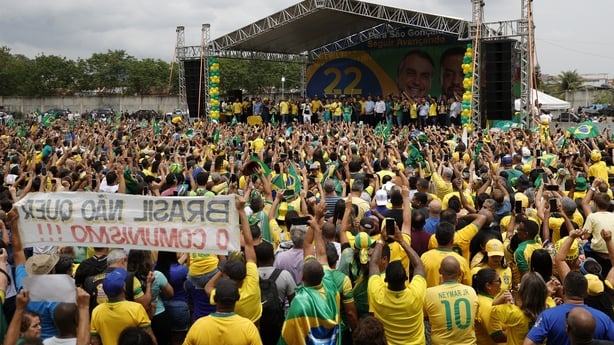
Dr Sabatini said many polling companies are now weighing their estimations differently, with most recent surveys still putting Lula ahead, the latest by around 7 percentage points.
"They're weighting it to get a more accurate count. The problem is in the United States, they did the same thing in 2020, claiming that they weren’t going to be as far off as in 2016 with Trump and they were. Trump ended up losing but by far less than many people expected."
He believes a similar pattern could be at play in Brazil where big businesses, particularly those involved in agriculture and mining could be apprehensive about protective measures that Lula has promised to introduce around the Amazon, for example.
"I don’t think pollsters have gotten their heads around how to count the supporters of populist demagogues, especially the ones that spout this nationalist vitriol, because people don’t want to admit who they're going to vote for."
Some of these, Dr Sabatini said, "are people that don’t even answer polls", however others are involved in big businesses that drive Brazil’s economy.
"Bolsonaro won big in the south and he won solidly in the south west. The south is obviously the industrial heart of Brazil. The south-west is sort of the great frontier of cattle ranching territory. But he also did quite well in the north-west which is the area of the Amazon and logging."
He suspects big business is one of the areas where survey miscounting has been occurring as people do not want to admit in polite company that they support the current president.
3. Bolsonaro often grabs a greater share of the publicity
From making a politcal address from a balcony during his visit to Britain for Queen Elizabeth’s funeral, to mass messaging on WhatsApp and Instagram, Bolsonaro often grabs more media attention than Lula.
"The media loves a train wreck," said Dr Sabatini. "They love a story. They love someone who is loud and bullying… when a politician is saying bland things and actually proposing policy and speaking sensibly, it doesn’t get much media coverage. If it doesn’t bleed, it doesn’t lead," he said.
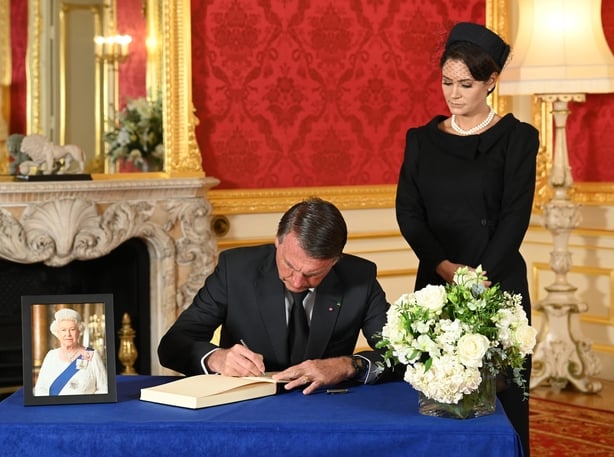
He added that many people, himself included, have now become addicted to doom scrolling about worst case scenarios from elections to climate.
"Bolsonaro is going to lead the headlines, just as Marine Le Pen does in France, as Trump does in the US and as Boris Johnson often did, frankly, in the UK. The media is going to lean towards covering a brutish, loud politician."
4. The incumbent has been endorsed by some popular figures, including footballers
Brazil is the only country to have won football's World Cup five times and has produced many football legends, including Neymar.
A few days before the first round of voting, he shared a 13-second TikTok video which electrified supporters of President Jair Bolsonaro. The video, posted on 29 September showed the footballer dancing to a campaign jingle highlighting Bolsonaro's position on the ballot, and the president was quick to share it on social media.
Other footballers have also shown their support for the far-right leader, including internationals Thiago Silva and Daniel Alves.
"They’re huge. First of all, Brazil is football-crazy and France and Spain can’t even compete with its love of football and rarification of football stars," said Dr Sabatini.
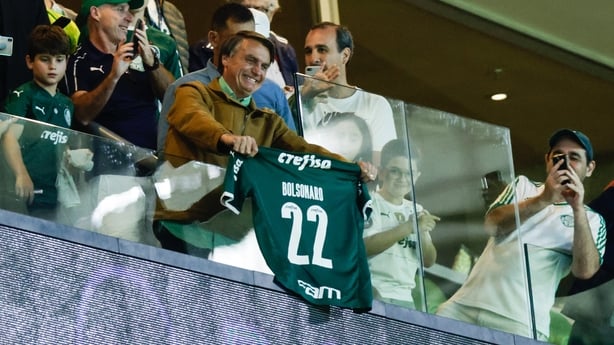
Many Brazilian football stars come from poorer backgrounds and some grew up in Brazil’s notorious favelas, where there are frequent reports of lawlessness and police brutality.
At first glance, it doesn’t make sense that they would support a president who has increased police powers, or that players of colour would support an openly racist president.
However, many footballers, particularly from Brazil’s growing evangelical Christian population, believe in triumph over adversity.
Neymar is himself an evangelical Protestant and said during a live chat with Bolsonaro on his YouTube channel: "Our Brazil is at play, our freedom, our families, our motherland. I put everything in the hands of God, God has plans for us all."
Sarah O’Sullivan agreed that "Brazilians are very influenced by what celebrities have to say". However, she said many others, including Hollywood stars, have used their influence to campaign for Lula in recent weeks.
"A huge amount of celebrities have come out in favour of Lula. A lot of people across the political spectrum, who have said they’d never vote for the Workers' Party, are now saying this is our only opportunity to change Brazil’s storyline at this point."
Aquaman star Jason Momoa this week became the latest celebrity to back Lula, while other international stars including Leonardo DiCaprio, Mark Ruffalo and Star Wars' Mark Hamill have also given him their support.
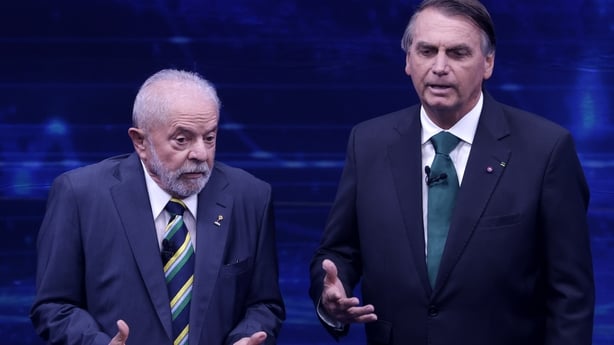
5. Even if he loses, Bolsonarism will leave a difficult legacy
Despite being ahead in the polls, Lula has high negative ratings from people who could never vote for him.
"They see him as communist, godless or they just didn’t like the shadow of corruption that hung over his government," said Dr Christopher Sabatini, who said the lines along who will vote for who are already set in this election.
Sarah O’Sullivan agreed that while some will vote for Lula as the least bad option, there is a group that could never support him.
"Definitely there was corruption during Lula’s government, so based on that a lot of people in Brazil will never vote for the Workers' Party, they say Lula’s a crook," she explained.
Lula da Silva was convicted following an investigation into a huge bribery scandal called Operation Car Wash which began in March 2014 as an investigation into allegations that executives at the state oil company Petrobras had accepted bribes from construction firms in return for awarding them contracts at inflated prices.
Allegations then swirled that some of these funds had been used to pay for political campaigns and to buy votes for the Workers' Party. Following a three-year investigation Lula, who denied all charges, was convicted and jailed for corruption over claims he had accepted a seaside apartment from a construction firm as a bribe. His conviction was annulled in March 2021 allowing him again to stand for office again this time around.
If he wins, Lula won’t be able to continue the government’s big spending for long and could face big opposition in Congress to pushing new legislation through.
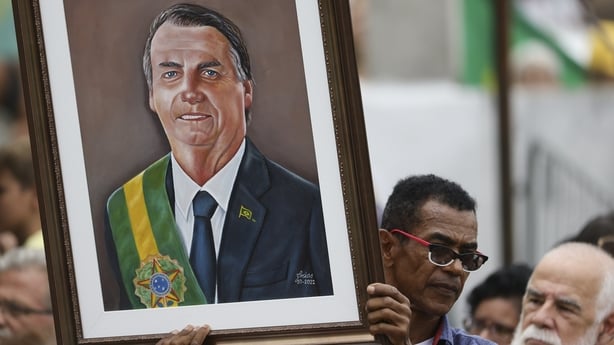
Dr Sabatini said: "It's going to be a very rough patch. Lula 2.0 is going to be nothing like Lula 1.0, not because of Lula, but because of the country he will inherit. For one, it now has an organised, grassroots, powerful, connected populist party on the right that is going to hammer him."
Sarah O'Sullivan said Bolsonaro’s recent loosening of restrictions around the right to bear arms has resulted in more civilians having access to guns than ever before. Many are now worried that upset with the results at the ballot box, could turn into violence on the streets.
"We have a 50/50 massive polarisation of society here, regardless of the election results the kind of level of hatred towards one another in this polarisation, that won’t go back in its box any time quickly here in Brazil, and that is a great concern for many people."
Additional reporting AFP, Reuters







